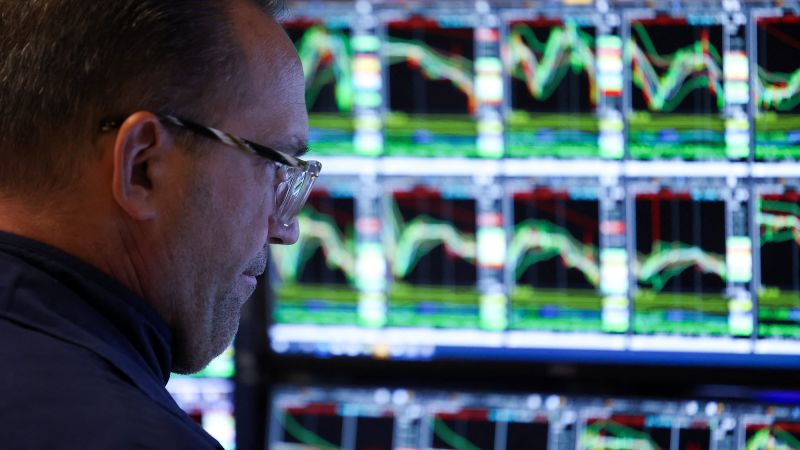US markets experienced significant volatility on Tuesday following another round of tariff-related uncertainty. Earlier in the day, President Donald Trump reinforced his threat to impose a new round of heavy tariffs on Canada, but officials from both countries announced they would meet this week to ease tensions.
The Dow was 290 points, or 0.2%, lower in afternoon trading, recovering some losses after dropping more than 700 points earlier. The broader S&P 500 fluctuated between gains and losses after nearing correction territory, while the Nasdaq Composite gained 0.6%.
The Cboe Volatility Index (VIX), Wall Street’s fear gauge, fell after climbing earlier in the day. On Monday, the VIX surged intraday by 19% and closed at its highest level since December.
“This market is just blatantly sick and tired of the back and forth on trade policy,” said Art Hogan, chief market strategist at B. Riley Wealth Management.
Hogan added, “It feels as though the administration continues to move the goalposts. With that much uncertainty, it’s impossible for investors to have any confidence.”
The decline in the Dow extends a market rout that has unsettled Wall Street and raised concerns about when the downturn will end.
Trump has warned that tariffs could cause ‘a little disturbance,’ and Commerce Secretary Howard Lutnick stated last week that ‘the fact that the stock market goes down half a percent or percent, it goes up half a percent or percent, that is not the driving force of our outcomes.’
White House Press Secretary Karoline Leavitt reiterated Trump’s comments that the US is in ‘a period of economic transition.’ When asked about market declines, Leavitt described them as a ‘snapshot of a moment in time.’
‘The president will look out for Wall Street and for Main Street just like he did in his first term, and people on Wall Street and Main Street should bet on this president. He’s doing what’s right for this country,’ Leavitt said.
Wall Street’s volatility follows a steep sell-off on Monday, during which the Dow dropped 890 points and the S&P 500 shed 2.7%. The benchmark index closed down 8.6% from its record high in February, nearing correction territory.
Trump, in an interview with Fox News on Sunday, did not rule out the possibility of a recession, contributing to investor anxiety.
Among the stocks dragging markets lower on Monday were airlines. Delta Airlines (DAL) fell 6% after cutting its earnings forecast for the year. American Airlines (AAL) dropped 6%, and United Airlines (UAL) fell 1.3%.
Elsewhere, Ford (F), one of the most actively traded stocks on Tuesday, slid 2%.
‘Extreme fear’ has been the sentiment driving investors for the past two weeks, according to CNN’s Fear and Greed Index, fueled by the uncertainty caused by Trump’s tariff announcements.
European stocks also declined as anxiety over Trump’s tariffs spread globally. The pan-European STOXX Europe 600 index fell 1.7%. Germany’s DAX and France’s CAC indexes each dropped 1.3% on the day, while London’s FTSE 100 was down 1.2%.
— news from CNN
